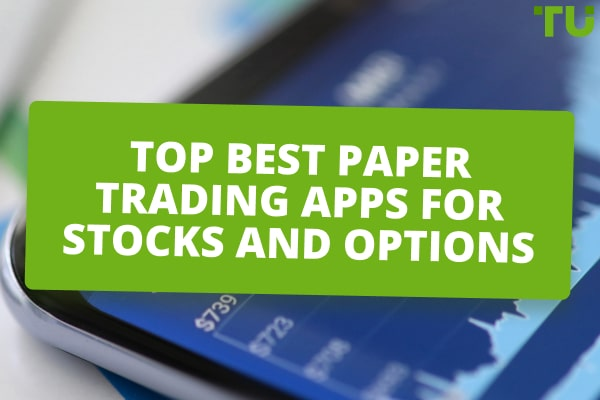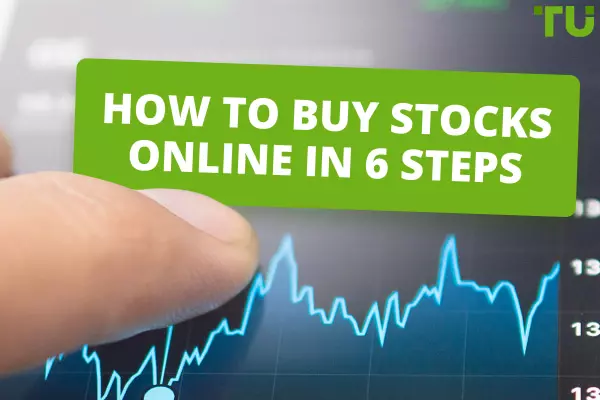Top 6 Best Brokers for Commission-free trading for 2024
There are a handful of free brokers that offer user-friendly trading platforms, superior technical indicators, and 24x7 customer support. However, it is not easier for individual traders to conduct an in-depth analysis of each stock broker. We, at TradersUnion, have shortlisted the top 6 brokers that offer free stock trading services.
Rating of Commission-free Trading Accounts in 2024
| Broker | Fees | Minimal deposit | Regulation | Markets | |
|---|---|---|---|---|---|
$0 per trade |
$0 |
The Financial Industry Regulatory Authority (FINRA). |
The United States (NYSE and NASDAQ). |
||
$0 per trade |
$0 |
The US Financial Industry Regulatory Authority (FINRA) and The Securities Investor Protection Corporation (SIPC) |
The United States (NYSE and NASDAQ). |
||
$0 per trade |
$0 |
The UK Financial Regulatory Authority (FCA), the US Securities and Exchange Commission (SEC), The US Financial Industry Regulatory Authority (FINRA) |
The United States, Europe, India, Canada, Australia, Hong Kong, Japan, and Singapore etc. |
||
$0 per trade |
$0 |
The UK Financial Regulatory Authority (FCA), the US Securities and Exchange Commission (SEC), The US Financial Industry Regulatory Authority (FINRA) |
Over 24 countries including the United States, Ireland, the United Kingdom, and India. |
||
$0 per trade |
$0 |
The U.S. Securities and Exchange Commission (SEC) and the Financial Conduct Authority (UK), and The Financial Industry Regulatory Authority (FINRA). |
The United States (NYSE and NASDAQ). |
||
$0 per trade |
$0 |
The Securities and Exchange Commission (SEC) and the Financial Industry Regulatory Authority (FINRA). |
The United States |
Free Stock Trading Platforms Comparison
We compared the 6 best free trading platforms analyzing the commissions they charge for stocks, ETFs, and Options trading.
| Broker | Stocks | ETFs | Options | Account Fee | Inactivity Fee | Other Fees |
|---|---|---|---|---|---|---|
No commission |
No commission |
10¢ per contract |
$0 |
$0 |
$35 transfer fee |
|
No commission |
No commission |
No commission |
$0 |
$0 |
$75 outgoing account transfer out fee |
|
No Commission for IBKR Lite users |
No Commission |
$0.65 per contract |
$0 |
$0 |
$0 |
|
No Commission |
No Commission |
$0.65 fee per contract |
$0 |
$0 |
$50 outgoing account transfer out fee |
|
No commission |
No commission |
No commission |
$0 |
$0 |
$75 outgoing account transfer out fee |
|
No Commission |
Commission-free |
$0.65 fee per contract |
$0 |
$0 |
$75 outgoing account transfer out fee |
eOption
eOption is a low-cost broker offering a full range of financial services to a broad range of customers all around the world. The company was established in 2017 and is based in the U.S. Beginners and professional traders can trade stocks, ETFs and options here at zero or minimum commission.
Options are the broker’s area of expertise, and therefore the commission for options contracts is charged at only $0.10 per contract. In addition, you can also trade US stock and EFTs with zero commission on the broker’s platform.
The features of the broker novice traders can benefit from include: non minimum deposit, free demo account, and a user-friendly trading platform. Furthermore, the broker’s commissions are not based on the trading volume, which makes it suitable for the beginners as well as professionals. eOption also boasts numerous awards, including THE BEST BROKER FOR LOW-COST OPTIONS TRADING, BEST FOR LOW-COST OPTIONS CONTRACTS.
Robinhood
Robinhood is a U.S-based free stock broker that facilitates commission-free trading. Users may like to use Robinhood for stocks, ETFs, and options. It also facilitates trading in cryptocurrencies like Bitcoin and Dogecoin commission-free. The trading platform of Robinhood is suitable for both beginners and professional traders.
The broker also offers a cash management account that provides an annual percentage yield of 0.30% on the uninvested cash. Investors feel protected with Robinhood as it offers $1.25 million in insurance from Federal Deposit Insurance Corporation (FDIC).
Robinhoods’ margin lending rates are the second-lowest in the industry after Interactive Brokers. It charges a uniform margin lending rate of 2.5% on the margin debt. Robinhood offers fractional trading which helps new traders to become stockholders of large-scale organizations like Amazon and Google with less investable capital.
Robinhood also offers one promo stock worth $3 to $225; the new users would become eligible to claim the free stock immediately after their registration with Robinhood’s trading platform is approved. Robinhood offers several stock trading tutorials to new traders. It also offers charting indicators, drawing tools, and expert reviews free of cost.
Interactive Brokers
Interactive Brokers has been in the market as a stockbroker for the last few decades. It is a reliable and commission-free stock broker that facilitates trading on stocks, options, cryptocurrencies, and ETFs. It offers trading services through two accounts which include IBKR LIte and IBKR Pro. Interactive Brokers launched IBKR Lite in 2019 to offer commission-free trading. This trader is popular for giving access to 26,000 mutual funds worldwide. One can use the Interactive Brokers trading platform to invest money in fixed income assets too.
Novice investors love to use Interactive Brokers for its mutual funds' replicator that identifies low-cost ETFs. Interactive Brokers also offer automated portfolio management services. Interactive advisors help investors build a recession-proof portfolio after considering various factors such as investor’s risk appetite, long-term goals, and the monthly investable amount. However, Interactive Brokers charge an annual management fee of 0.12% to build and monitor portfolios.
Experienced traders would like to stay with Interactive Brokers because of its lowest margin lending rates. The margin lending rate of this stockbroker for an amount higher than $3.5 million is 0.86%. However, the margin lending rate goes up to 1.59% if the margin amount is less than $25,000.
Fidelity
Fidelity Investments is highly popular for $0 trading commission, user-friendly trading platform, a large pool of mutual funds, and research offerings. This free broker is highly suitable for active traders, long-term investors, and options traders.
All ETFs on Fidelity are traded commission-free. However, options trading carries a per-contract commission of $0.65. Fidelity has two trading platforms which include Fidelity.com and Active Trade Pro. The mobile application of the Fidelity trading platform is available on both Android and iOS. The customer support of this broker is available 24x7 on the telephone, chat, and email.
Fidelity gives access to 3400 no-transaction-fee mutual funds. It has over 700 index funds with an expense ratio of lesser than 0.50%. Fidelity’s margin lending rates are competitive. It charges 8.325% on the margin amount up to $25,000. The margin interest rate would be 4% for the margin amount exceeding $1 million.
Fidelity has a cash management account that offers an annual percentage yield of just 0.01%. The cash balances with Fidelity are protected through Federal Deposit Insurance Corporation (FDIC).
Webull
Webull is one of the reliable free brokers in the United States. It allows users to trade stocks, exchange-traded funds, options, and cryptocurrencies. It is one of the few free brokers that facilitate fractional trades. Webull does not charge commissions on trading stocks, ETFs, and options.
Webull does not impose any restrictions on the minimum amount that a trader wants to deposit to the platform; it offers a $0 minimum deposit. Traders like to stay with Webull as it offers $500,000 investor protection, including a $250,000 limit for claims for cash.
Webull has gain wide popularity in the market due to its promo stocks. The broker offers two free stocks to new traders. The first free promo stock worth $3 to $300 is deposited into the user’s account immediately after the user opens the trading account. Users would receive the second free promo stock worth $7 to $2000 immediately after they deposit a minimum amount of $5 to their Webull’s brokerage account.
Webull offers attractive margin lending rates for its customers. Its margin lending rate for the amount up to $25,000 is $6.99%. If the margin amount exceeds $3 million, the lending rate falls to $3.99%. Webull offers a broad range of technical indicators, drawing tools, and free trading education to its customers. Its trading platform is suited for both novice and professional traders.
Ally Invest
Ally Invest is a commission-free trading platform with a user-friendly trading interface. If you are planning to trade on U.S based securities, you may choose this broker. Its trading platform is suitable for both inexperienced and experienced traders. Ally Invest also offers automated portfolio management services just like Interactive Brokers. Most investors love to choose this broker as it gives access to 11,200 mutual funds at no transaction fee.
Though Ally Invest does not offer free promo stocks, it runs promotions every month. In January 2023, Ally Invest is giving a bonus of $100 to the investors who deposit $10,000 to their trading account. Investors may get a bonus of up to $3000 for deposits higher than $2 million.
Ally Invest’s margin lending rates are a bit higher when compared to Interactive Brokers and Robinhood. However, they are competitive for investors who would like to avail higher-margin amounts. The margin lending rate of Ally Invest for the amount higher than $1 million is 3.25%. For margin amounts lower than $10,000, Ally Invest charges a margin lending rate of 7.75%. You may like to use Ally Invest for its robust charting indicators, drawing tools, and 21-field watchlist. Ally Invest’s customer support is available on phone, email, and chat 24x5.
How to Buy Stocks Online Free
There are several steps involved in buying stocks online for free. We took Webull as an example to showcase how a trader can start buying stocks online for free.
Step-1: Register using your Email ID and Phone Number
The new user needs to register on the online trading platform offered by a free broker. Webull asks the new user to enter an email id and phone number at the time of registration. Webull sends an automatic mail to the email id and a message to the phone number to confirm if the user provided the valid information or not.
Step-2: Avail Free Promo Stock
Most free brokers offer free promo stocks. For instance, Webull offers two free promo stocks. Robinhood offers one free promo stock. If you use Webull, the first free stock worth $3 to $300 would be credited to your brokerage account immediately after your new registration is approved.
Stock-3: Transfer Funds
New users need to link their bank account to the trading platform. Most brokers accept money via ACH and wire transfers. Some brokers offer free promo stocks only after the user links the bank account. For instance, Webull gives out the second promo stock worth $7 to $2000 only after you link the bank account and make a transfer of $5 to the trading account. Robinhood’s customers are eligible to claim the free promo stock worth $3 to $224 after they link their bank account.
Step-4: Develop a Watchlist
A watchlist is the list of potential stocks for investing. Every broker enables the trader or investor to create a watchlist of the potential stocks. Webull allows its users to create a watchlist of up to 100 stocks. Webull users can see a search button on the top right corner of the window. They just need to enter the stock and click the star symbol that appears on the right side of the stock to add it to the watchlist.
Step-5: Sell Free Stocks and Purchase New Stocks
You can sell the free promo stocks and use the proceeds to purchase new stocks free of cost. When you click the stock name on the watchlist, you may see a small window opened on Webull’s trading platform. The window comprises columns such as buy, sell, order type, quantity, and the limit price. You may need to enter the quantity and hit the buy button to invest money.
How do Free Stock Brokers Make Money?
Free trading platforms make money in several methods. A few of them include transaction-based revenues, margin lending, deposit or withdrawal fees, inactivity fees, and account upgrade fees.
For most free brokers, transaction-based revenues contribute more than 50% to the total revenues. Brokers earn fees for every order they route to market makers. For instance, Robinhood, a well-known free broker, earns 80% of its gross revenues by routing orders to market makers.
Experienced traders do margin trading to unleash the true potential of options trading. To do margin trading, the trader needs to take margin money from the broker. Most free brokers lend margin money at annual lending rates ranging from 2% to 9%. Interactive Brokers and Robinhood offer the lowest lending rates in the industry. The highest possible margin lending rates of Interactive Brokers and Robinhood are 1.59% and 2.5% respectively. A broker like TD Ameritrade charges a lending margin rate of 7.5% if the margin money exceeds $0.25 million. If a trader avails the margin money of $0.25 million for a year, TD Ameritrade would earn around $18,500.
Every free broker offers several account types. The notable thing here is that not all these accounts facilitate free trading. They offer free trading on only standard or basic accounts. If the trader wants to upgrade to a premium account to avail of features like margin lending and smart order routers, they may need to pay for the same. The finest examples for free and premium account types are Interactive Broker’s IBKR Lite and IBKR Pro accounts. Whilst IBKR Lite facilitates trading free of cost, IBKR Pro charges a commission on options trading.
Free brokers would also charge a certain fee on deposits and withdrawals. If we take Interactive Brokers, it allows one free withdrawal every month. From the second withdrawal, it charges $10 on wire transfer, $4 on the check, and $1 on ACH.
Methodology
The Traders Union has a unique framework in place to evaluate brokers and trading platforms worldwide. It uses more than 100 parameters to evaluate the trading platforms. It gives high priority to analyze the financial stability, reliability, safety, and service quality while ranking stock brokers.
Traders Union analyzes the reliability of a broker by checking the customer satisfaction, standards of customer care, reputation in the market, and level of trust. It closely scrutinizes each broker on parameters such as solvency, liquidity, revenue growth, number of new customers, and number of transfer outs. Regulatory approvals are very important for every stock broker. Traders Union checks if the chosen stockbroker has relevant approvals and licenses of the regulatory bodies.
Traders Union has considered the following parameters to evaluate the free brokers.
-
Account maintenance fees
-
Inactivity fees
-
Money deposit fees
-
Minimum deposit
-
Month withdrawal fees
-
Commissions on the trading of stocks, ETFs, and options
-
Availability of promo stocks
-
Availability of technical indicators and drawing tools
-
Number of accounts
-
Number of trading platforms
Summary
On a whole, free brokers eliminate a lot of costs associated with trading. Most free brokers offer a $0 minimum account to enable new traders to start their stock market journey. The 6 free brokers reviewed in the guide offer commission-free stock trading services. A few of them charge a nominal per-contract fee of $0.65 on options trading. The online trading platforms of all these free brokers are user-friendly and assist traders through technical indicators, charting tools, and educational content. The margin lending rates of a few brokers reviewed in this article are higher than the industry’s average. Traders may need to carefully analyze their requirements before choosing a broker. For instance, if the trader wants to do margin trading, Interactive Brokers would be the perfect choice for him. For options trading, we suggest Webull and Robinhood as they don’t charge any per-contract commissions.
FAQs
Is trading risky?
Trading can be risky if you don’t know the basic principles and strategies of trading. You may lose money if you purely depend on the luck factor. Trading can be a profitable side hustle if you learn trading strategies and develop a personalized trading framework.
Should I invest in ETFs?
Yes, ETFs have historically delivered a good return on investment to investors. If you are new to the field of stock market investing, we suggest you invest in ETFs as they are less volatile and reflect the returns of stock market indices.
Is paper trading mandatory?
No, paper trading is not mandatory. But, it is useful for beginners to gain hands-on experience and develop trading strategies before going in with real money. Most experienced traders use paper trading to develop a personalized trading framework.
What are extended trading hours?
Extended trading hours refer to the timeframe before or after the official trading timeline. It can be pre-market trading or after-hours trading. This facility allows you to participate in trading even after the stock exchanges are closed.
Team that worked on the article
Glory is a professional writer for the Traders Union website with over 5 years of experience in creating content in the areas of NFT, Crypto, Metaverse, Blockchain, or Web3 in general. Over the last couple of years, Glory has also traded on different cryptocurrency and NFT platforms including Binance, Coinbase, Opensea, and others.
“I understand a lot about this space, being familiar with CEX, DeFi, and DEX, as well as operating across the Ethereum, Binance, and Polygon networks. Also, I know the intricacies and subtleties of NFTs and crypto, thus I am able to bring to table the best content and help connect with the audience better.”
Olga Shendetskaya has been a part of the Traders Union team as an author, editor and proofreader since 2017. Since 2020, Shendetskaya has been the assistant chief editor of the website of Traders Union, an international association of traders. She has over 10 years of experience of working with economic and financial texts. In the period of 2017-2020, Olga has worked as a journalist and editor of laftNews news agency, economic and financial news sections. At the moment, Olga is a part of the team of top industry experts involved in creation of educational articles in finance and investment, overseeing their writing and publication on the Traders Union website.
Olga has extensive experience in writing and editing articles about the specifics of working in the Forex market, cryptocurrency market, stock exchanges and also in the segment of financial investment in general. This level of expertise allows Olga to create unique and comprehensive articles, describing complex investment mechanisms in a simple and accessible way for traders of any level.
Olga’s motto: Do well and you’ll be well!
Mirjan Hipolito is a journalist and news editor at Traders Union. She is an expert crypto writer with five years of experience in the financial markets. Her specialties are daily market news, price predictions, and Initial Coin Offerings (ICO). Mirjan is a cryptocurrency and stock trader. This deep understanding of the finance sector allows her to create informative and engaging content that helps readers easily navigate the complexities of the crypto world.
















